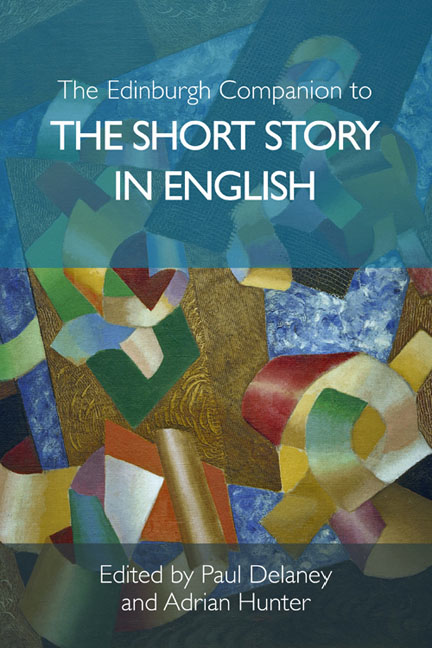Book contents
- Frontmatter
- Contents
- Acknowledgements
- Notes on Contributors
- Introduction
- Part I Historicising the Short Story
- 1 Transnationalism and the Transatlantic Short Story
- 2 The Short Story and the Professionalisation of English Studies
- 3 Impressionism and the Short Story
- 4 Writers on the Short Story: 1950–present
- Part II Publishing the Short Story
- Part III Forms of the Short Story
- Part IV Placing the Short Story
- Part V Identity and the Short Story
- Index of Short Story Titles
- General Index
1 - Transnationalism and the Transatlantic Short Story
from Part I - Historicising the Short Story
Published online by Cambridge University Press: 18 December 2019
- Frontmatter
- Contents
- Acknowledgements
- Notes on Contributors
- Introduction
- Part I Historicising the Short Story
- 1 Transnationalism and the Transatlantic Short Story
- 2 The Short Story and the Professionalisation of English Studies
- 3 Impressionism and the Short Story
- 4 Writers on the Short Story: 1950–present
- Part II Publishing the Short Story
- Part III Forms of the Short Story
- Part IV Placing the Short Story
- Part V Identity and the Short Story
- Index of Short Story Titles
- General Index
Summary
CONVENTIONAL NARRATIVES CONCERNING the origins of the short story in English have been challenged recently by new scholarly approaches that engage with important questions of nationalism, cosmopolitanism, literary transmission and print culture. Before the so-called ‘transnational turn’ in the twenty-first century, critics of the short story were prone to afford an especial place in the development of the genre to a certain restricted canon of nineteenth-century practitioners, normally including Washington Irving, Edgar Allan Poe, Nathaniel Hawthorne, Herman Melville and Sir Walter Scott, all of whose aesthetic achievements were tracked to prevalent conceptions of national traditions and ‘origins’ that have now been revealed as problematic.
Nationalism has often reared its head in discussions of the short story. Galvanised, yet certainly not inaugurated, in the twentieth century by influential critical works such as Frank O'Connor's The Lonely Voice (1963), which argued that an alienation from the hegemonic imperial metropole of London afforded a particular richness to the work of Scottish, Irish and American writers in the genre (who could be seen as exemplars of subaltern ‘cultures’), critics have often sidestepped the material facts of publication history so as to pin short stories to specific national traditions. Even when some account of publication is made, formalist critical approaches that try to locate distinctive, recurrent features of the short story are marked by a persistent, though often subtle, nationalist undertone. This nationalism reflects older concepts of canonicity: an artificial understanding of a work's literary value, rooted in a subjective assessment of its ability to capture national ‘traits’, that can be traced back to Matthew Arnold. However, it also reflects the so-called origins of the ‘short story’ in late eighteenth- and early nineteenth-century German philology and folklore data collection by such figures as Johan Gottfried Herder, Wilhelm Von Humboldt and the Brothers Grimm. It is generally acknowledged that the collections of folk tales and legends assembled by these figures had significant circulations in the Atlantic world and contributed to an emerging Romantic project of celebrating the ‘primitive’, ‘indigenous’ and professedly ‘anti-modern’ as potential wellsprings of national renewal in the wake of exhaustion with late eighteenth-century revolutionary modernising projects associated with a French conception of progressive civilisation. These texts, particularly those of the Grimms (whose first collection of Kinder- und Hausmärchen was published in 1812), were widely read in German, which operated effectively as a second national language in America.
- Type
- Chapter
- Information
- Publisher: Edinburgh University PressPrint publication year: 2018



